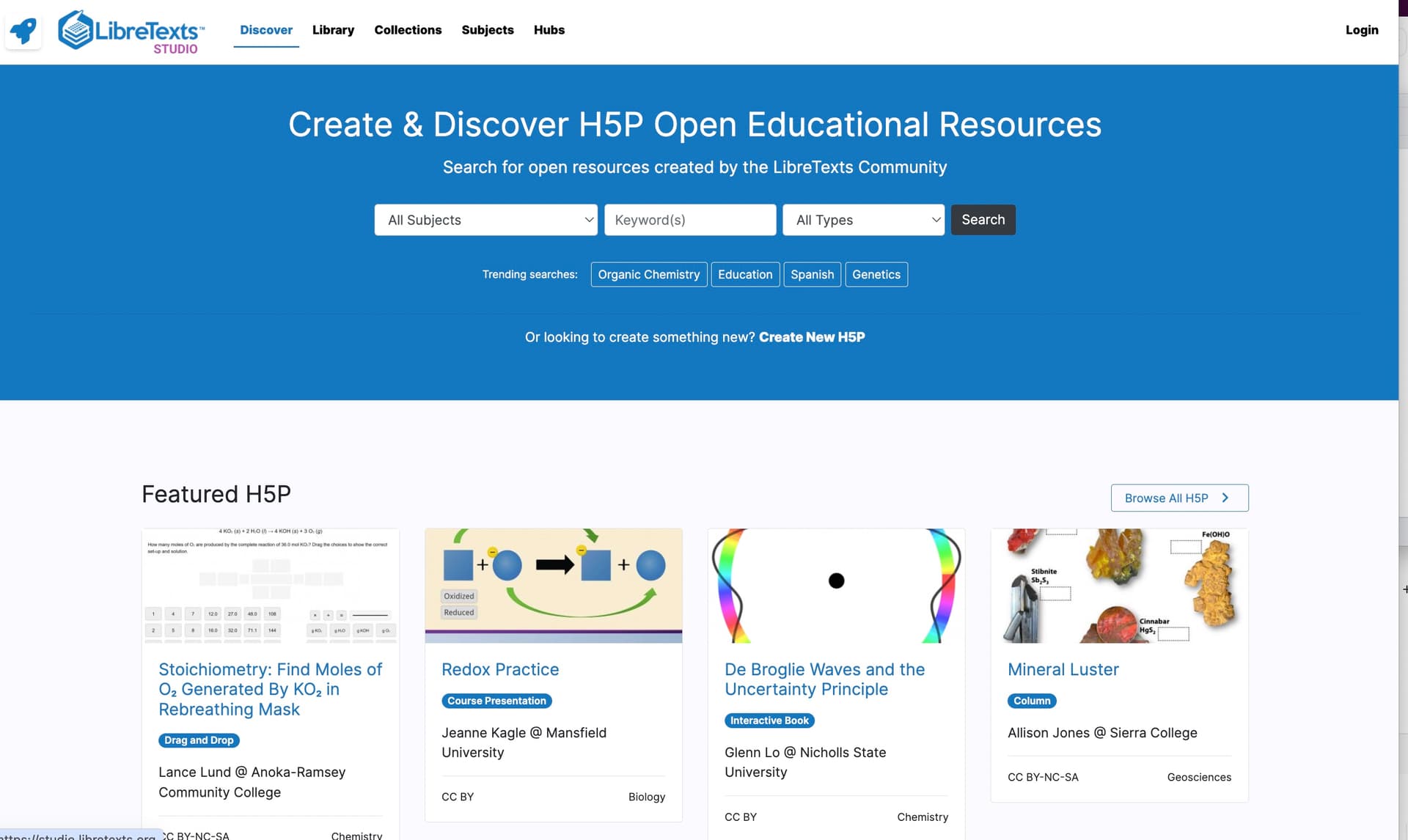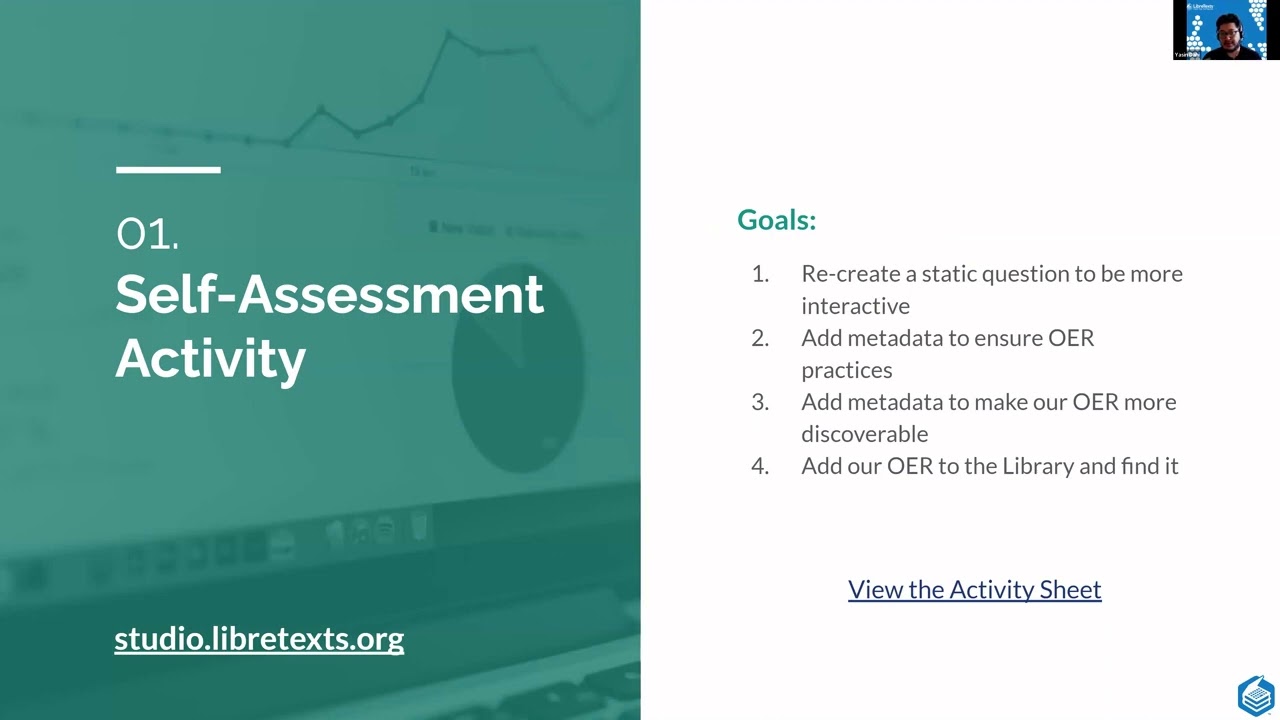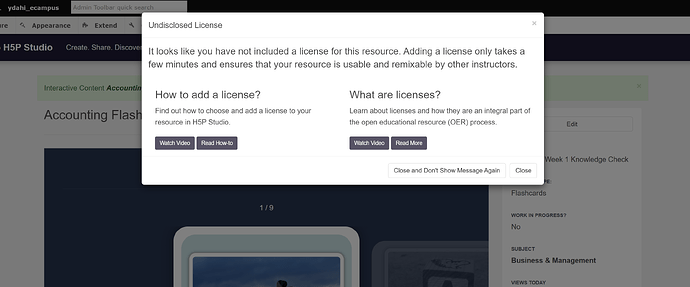I have an long running interest and appreciation for all that can be added to OERs for practice and interactive learning with the H5P tools especially in how openness is built into the content types made with it.
And I know amongst this community are many people doing innovative work with creating H5P powered OER, we have roused interest previously. Also, just out today is “interesting” news that D2L has just acquired H5P (let’s out the speculation aside for now, or why not, chime in on it!).
In some previous work supporting educators use of H5P in open textbooks I found that one thing that helped them consider what they might do rather than picking from a list of tools is to see examples if it used, especially in the same academic areas. Or as in the kitchen/cooking metaphor
A prime place for explpring H5P content that I often recommended (and still do) is the eCampusOntario H5P Studio. I had also recommend the LibreTexts Studio as well, but have to say on a chance return visit, I have a big “WOW” to say and how I wish I had this available a few years ago.
I’ll leave it to the interested link clicker to explore all the different ways to find (and potentially reuse/remix) H5P content
There’s featured items curated on the front page, the full searchable/filterable library (similar features for a good reason to eCampusOntario’s H5P Studio), collections of related H5P content, browse by academic subject area, and the “hub” where you can find all H5P contributed by different institutions/organizations.
I top my H5P hat to our colleagues out OEGlobal Member LibreTexts and leader @DelmarLarsen The similarities to the original eCampusOntario H5P Studio are a result that the person behind that @yasin.dahi has been working with LibreTexts in their studio using his open studio software from Learnful Labs.
This is all that more reassuring to see that from the start of my H5P Kitchen work in 2020, there has been promise of their own H5P OER Hub which frankly has been stuck at 98% for the last 4 years. Perhaps new owners D2L will nudge that?
Regardless, if you have any interest in making use of interactive H5P content- you do not even have to build it! You can use H5P from Libretexts studio by copying it;s embed code. So let’s say you want to reuse the Mineral Luster activity created by Allison Jones at Sierra College, click the Reuse button at the bottom left, and BOOM, use in any web authoring system that supports iframes, and you have just reused an OER
So who here is interested in stirring up some H5P activity again? Who wants to learn more about using it? And maybe we can entice @DelmarLarsen and @yasin.dahi to drop in for an OEG Live session so we can learn more about LibreStudio but also about perhaps creating their own studio with Learnful Labs.


